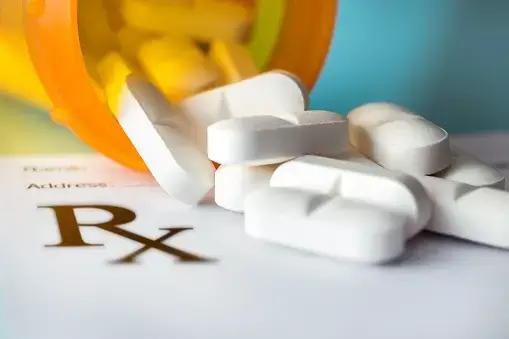- Home
- Medical news & Guidelines
- Anesthesiology
- Cardiology and CTVS
- Critical Care
- Dentistry
- Dermatology
- Diabetes and Endocrinology
- ENT
- Gastroenterology
- Medicine
- Nephrology
- Neurology
- Obstretics-Gynaecology
- Oncology
- Ophthalmology
- Orthopaedics
- Pediatrics-Neonatology
- Psychiatry
- Pulmonology
- Radiology
- Surgery
- Urology
- Laboratory Medicine
- Diet
- Nursing
- Paramedical
- Physiotherapy
- Health news
- Fact Check
- Bone Health Fact Check
- Brain Health Fact Check
- Cancer Related Fact Check
- Child Care Fact Check
- Dental and oral health fact check
- Diabetes and metabolic health fact check
- Diet and Nutrition Fact Check
- Eye and ENT Care Fact Check
- Fitness fact check
- Gut health fact check
- Heart health fact check
- Kidney health fact check
- Medical education fact check
- Men's health fact check
- Respiratory fact check
- Skin and hair care fact check
- Vaccine and Immunization fact check
- Women's health fact check
- AYUSH
- State News
- Andaman and Nicobar Islands
- Andhra Pradesh
- Arunachal Pradesh
- Assam
- Bihar
- Chandigarh
- Chattisgarh
- Dadra and Nagar Haveli
- Daman and Diu
- Delhi
- Goa
- Gujarat
- Haryana
- Himachal Pradesh
- Jammu & Kashmir
- Jharkhand
- Karnataka
- Kerala
- Ladakh
- Lakshadweep
- Madhya Pradesh
- Maharashtra
- Manipur
- Meghalaya
- Mizoram
- Nagaland
- Odisha
- Puducherry
- Punjab
- Rajasthan
- Sikkim
- Tamil Nadu
- Telangana
- Tripura
- Uttar Pradesh
- Uttrakhand
- West Bengal
- Medical Education
- Industry
Empagliflozin reduces insulin initiation in patients with diabetes and CVD: EMPA-REG OUTCOME trial

USA: Empagliflozin markedly and durably delays insulin initiation and substantial increases in insulin dose in patients with type 2 diabetes and cardiovascular disease, show results from the EMPA-REG OUTCOME trial. The SGLT-2 inhibitor also facilitated sustained reductions in insulin requirements over time. The findings are published in the journal Diabetes Obesity and Metabolism.
Insulin is an antihyperglycaemic therapy often needed for the management of type 2 diabetes to control blood sugar levels. Global insulin requirement is expected to increase by more than 20% by 2030. Although insulin use does not appear to directly adversely affect cardiovascular risk or overall mortality, its use has some shortcomings. The need for insulin intensification in practice represents a marker of clinical progression and tracks with the accumulation of cardiometabolic risk factors, insulin use identifies a high-risk cohort of patients with type 2 diabetes for adverse cardiovascular events and premature death. Also, insulin can be expensive and its use requires time, training, and resource expenditure. Also, adverse effects of its use such as hypoglycemia and weight gain may be problematic for patients with concomitant cardiovascular disease.
Considering the above limitations of insulin use, the researchers felt the need for reducing the reliance on insulin use by deploying sodium-glucose co-transporter-2 (SGLT-2) inhibitors that have modest glycaemic effects and may improve β-cell function and insulin sensitivity. Muthiah Vaduganathan, Harvard Medical School, Boston, Massachusetts, USA, and colleagues, therefore, aimed to evaluate the effects of empagliflozin versus placebo on subsequent insulin initiation or dosing changes in a large cardiovascular outcomes trial in the EMPA-REG OUTCOME trial.
The study included 7020 patients with type 2 diabetes and cardiovascular disease. They received empagliflozin 10 mg, 25 mg, or placebo and were followed for a median of 3.1 years. Following 12 weeks of treatment, changes in background antihyperglycaemic therapy were permitted. Among insulin-naïve patients, the effects of pooled empagliflozin arms versus placebo on time to initiation of insulin were assessed. Among insulin-treated patients, effects on time to an increase or decrease in insulin dose of more than 20% were assessed.
Key findings include:
- In 52% of participants not treated with insulin at baseline, empagliflozin reduced new use of insulin versus placebo by 60% (7.1% vs. 16.4%; adjusted HR 0.40).
- In 48% of patients using insulin at baseline, empagliflozin reduced the need for a greater than 20% insulin dose increase by 58% (14.4% vs. 29.3%; adjusted HR 0.42) and increased the proportion achieving sustained greater than 20% insulin dose reductions without subsequent increases in HbA1c compared with placebo (9.2% vs. 4.9%; adjusted HR 1.87).
- Sensitivity analyses confirmed consistent findings when insulin dose changes of more than 10% or more than 30% were considered.
"Our findings showed that empagliflozin substantially reduced rates of insulin initiation or intensification among patients with type 2 diabetes and cardiovascular disease," the authors wrote. "Reductions in insulin needs and dosing may attenuate treatment attendant adverse effects, including weight gain and hypoglycemia, which may be especially problematic for patients with co-morbid cardiovascular disease."
"There is a need for further data from studies with alternative designs that do not actively encourage glycaemic equipoise to corroborate the treatment effects of SGLT-2 inhibitors on longitudinal insulin requirements. If replicated, the long-term implications of these effects on improvement in patient satisfaction, quality of life, and costs of care require further study, they concluded.
Reference:
The study titled, "Effects of empagliflozin on insulin initiation or intensification in patients with type 2 diabetes and cardiovascular disease: Findings from the EMPA-REG OUTCOME trial," is published in the journal Diabetes Obesity and Metabolism.
DOI: https://dom-pubs.onlinelibrary.wiley.com/doi/10.1111/dom.14535
Dr Kamal Kant Kohli-MBBS, DTCD- a chest specialist with more than 30 years of practice and a flair for writing clinical articles, Dr Kamal Kant Kohli joined Medical Dialogues as a Chief Editor of Medical News. Besides writing articles, as an editor, he proofreads and verifies all the medical content published on Medical Dialogues including those coming from journals, studies,medical conferences,guidelines etc. Email: drkohli@medicaldialogues.in. Contact no. 011-43720751


